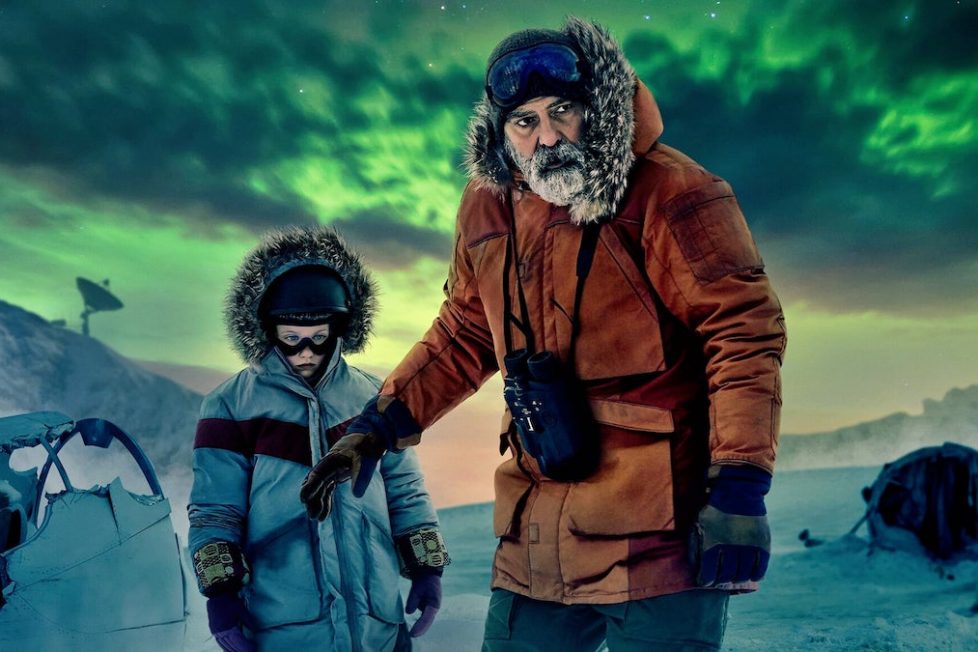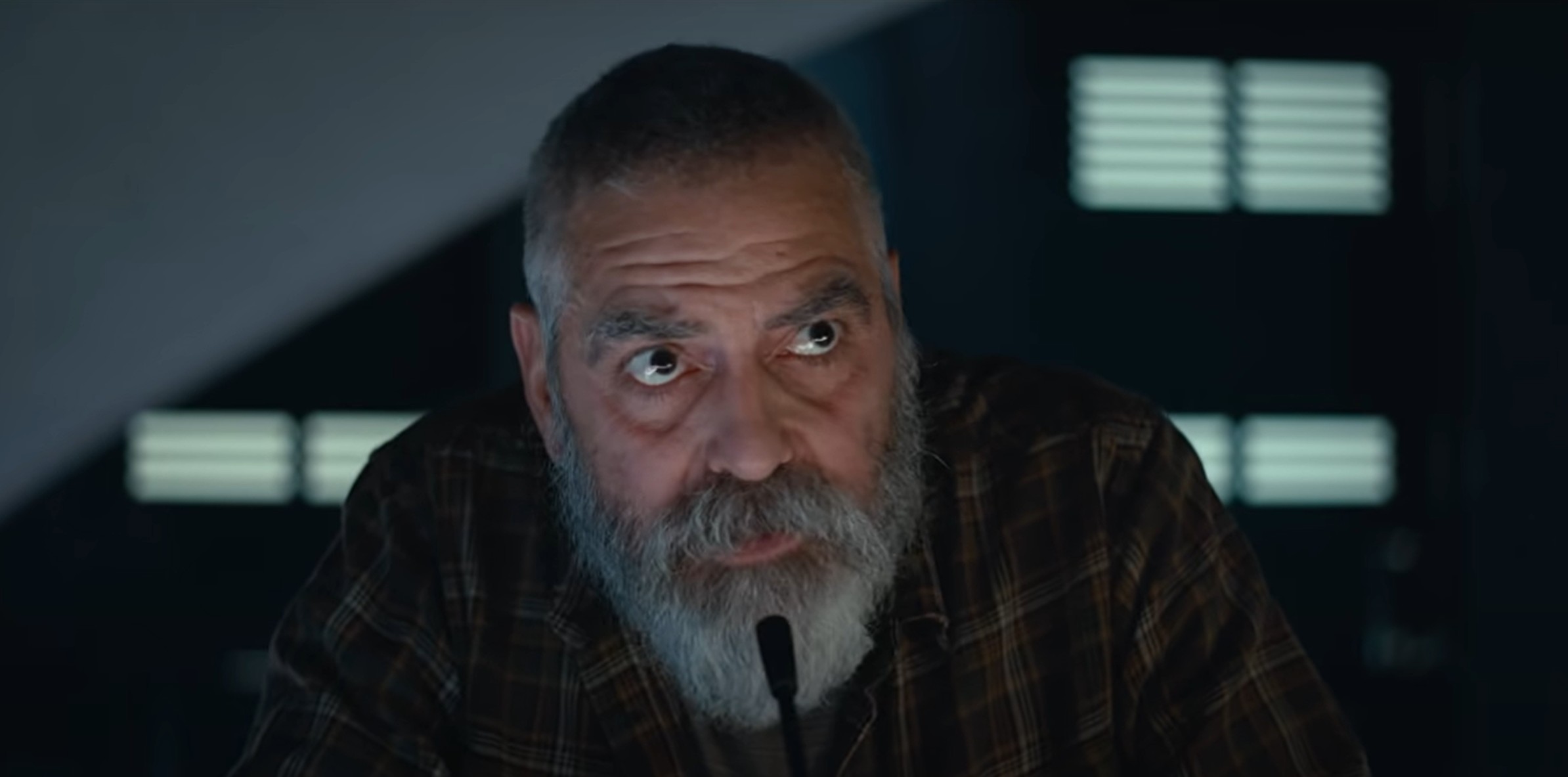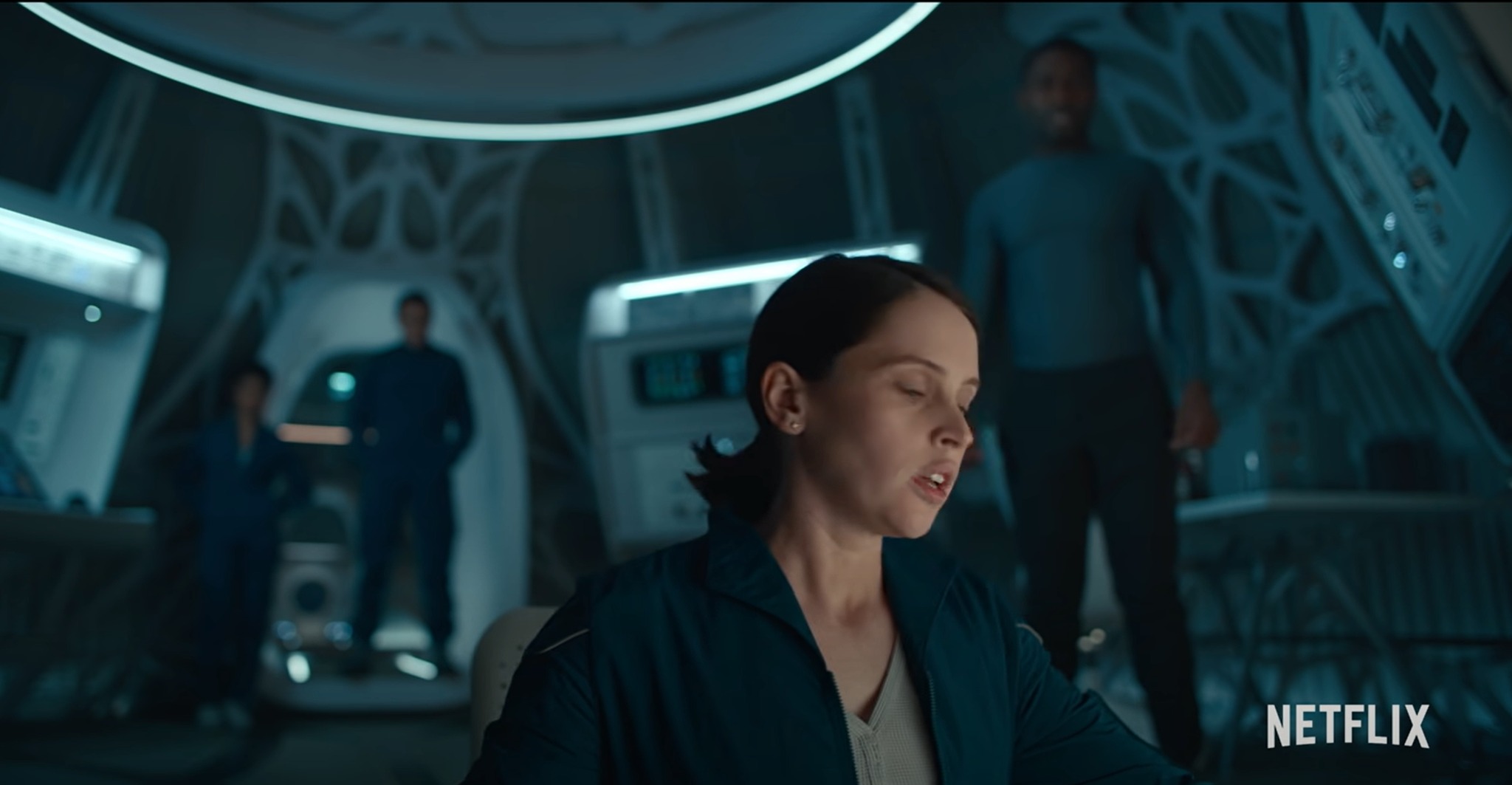The Midnight Sky (2020)

Directed by and starring George Clooney, “The Midnight Sky” (2020) adapts Lily Brooks-Dalton’s novel “Good Morning, Midnight” into a poignant sci-fi drama that delves into themes of isolation, survival, and the human spirit amidst catastrophe. Clooney portrays Augustine, a scientist stationed in the Arctic who discovers a global catastrophe unfolding on Earth. As he attempts to warn a returning spaceship crew about the dangers awaiting them, the film alternates between Augustine’s solitary struggle in the frozen wilderness and the astronauts’ perilous journey back to a planet they no longer recognize.
The narrative of “The Midnight Sky” unfolds with a melancholic beauty, accentuated by haunting visuals that capture the desolate Arctic landscape and the vast emptiness of space. The cinematography, under Clooney’s direction, paints a stark yet mesmerizing portrait of isolation and desolation, highlighting the contrast between Earth’s frozen tundra and the infinite expanse of the cosmos.

George Clooney’s performance as Augustine is a testament to his acting prowess, portraying a man burdened by guilt and loneliness yet driven by a sense of duty to protect those he cares about. Augustine’s character arc is marked by moments of introspection and quiet determination as he grapples with his own mortality and the impending doom facing humanity. Clooney’s nuanced portrayal brings depth to Augustine, allowing viewers to empathize with his internal struggles and moral dilemmas.

The film’s narrative structure seamlessly weaves together Augustine’s solitary mission in the Arctic with the astronauts’ harrowing journey through space. Felicity Jones shines as Sully, the spaceship’s commander who wrestles with her own past while leading her crew towards an uncertain future. Together with David Oyelowo as Adewole and Kyle Chandler as Mitchell, the ensemble cast delivers compelling performances that underscore the emotional and psychological toll of their mission.
“The Midnight Sky” is not merely a tale of survival against the backdrop of a dying planet; it is a meditation on human resilience and the bonds that connect us across time and space. The relationship between Augustine and a young girl named Iris, played with innocence and curiosity by Caoilinn Springall, adds a poignant layer to the narrative. Their unlikely companionship becomes a source of hope amidst the bleakness, highlighting the capacity for connection and compassion even in the face of imminent catastrophe.

Visually, the film captures both the beauty and brutality of nature, from swirling Arctic storms to the silent majesty of the stars. The special effects, coupled with Alexandre Desplat’s haunting musical score, enhance the film’s atmospheric intensity and emotional depth, immersing viewers in its atmospheric world and emotional journey.
However, “The Midnight Sky” is not without its flaws. Some viewers may find the pacing uneven, as the film alternates between introspective moments of character development and high-stakes action sequences. The narrative, while poignant, occasionally veers into predictable territory, especially in its exploration of themes of sacrifice and redemption.

Nevertheless, “The Midnight Sky” remains a compelling exploration of humanity’s resilience in the face of existential crisis. It challenges audiences to reflect on the consequences of human hubris and the enduring power of hope in the darkest of times. As George Clooney’s directorial effort, the film showcases his ability to blend introspective drama with gripping sci-fi spectacle, creating a cinematic experience that resonates long after the credits roll.
In conclusion, “The Midnight Sky” (2020) offers a thought-provoking journey through solitude, survival, and redemption. With its evocative visuals, reflective tone, and stellar performances, the film invites audiences to contemplate the fragility of life and the enduring spirit of humanity in a universe fraught with uncertainty.